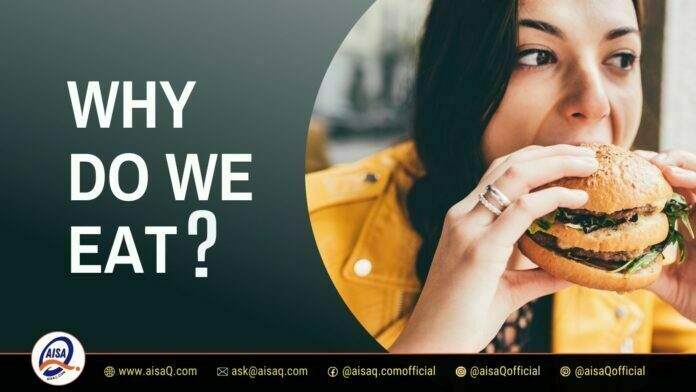Why Do We Eat?
Eating is a basic human need that sustains our lives. We eat to fuel our bodies and provide them with the nutrients they need to function properly. But have you ever stopped to think about why we eat? Is it just about satisfying hunger, or is there more to it than that? In this article, we’ll explore the many reasons why we eat, from the physical and psychological to the social and cultural.
Table of Contents
The Biological Reasons
Our bodies need food to survive, plain and simple. We require nutrients and energy to maintain bodily functions, and the only way to obtain these essential elements is through eating. When we consume food, our digestive system breaks it down into its constituent parts, allowing our body to absorb the necessary nutrients.
The Science of Eating
Our bodies require energy to function, and food provides that energy. When we eat, our digestive system breaks down the food into smaller components that our body can use for fuel. These components include carbohydrates, proteins, and fats, which are broken down into glucose, amino acids, and fatty acids, respectively. These components are then absorbed into the bloodstream and transported to our cells, where they are used for energy or stored for later use.
The Psychology of Eating
While eating is essential for our physical health, it also has a significant impact on our mental health. Many people turn to food for comfort or as a coping mechanism for stress, anxiety, or other emotional issues. In some cases, this can lead to overeating and unhealthy eating habits. Understanding our psychological relationship with food is crucial for developing a healthy relationship with eating.
The Social and Cultural Aspects of Eating
Eating is not just about fueling our bodies; it is also a social activity that connects us with others. Sharing a meal with friends and family is a way to bond and connect with each other. Food also plays an essential role in cultural traditions and celebrations. For example, many cultures have specific dishes that are eaten during holidays or special events. Understanding the social and cultural aspects of eating can help us appreciate the role food plays in our lives.
FAQs:

Why Do We Eat?
We eat because food has a lot of calories, and all animals need calories to get energy from food.We know that we need to eat at least 5000 calories a day in order to maintain our health.This is about 4000 more than what people actually eat every day.We like the taste of food, so we are hungry when it’s time to eat.
Why do we get hungry?
Hunger is a signal that our body needs energy and nutrients to function properly. When our stomach is empty, it releases hormones that stimulate our appetite, encouraging us to eat.
What is the difference between hunger and appetite?
Hunger is a physical sensation caused by a lack of food, while appetite is the desire to eat, which can be triggered by emotional or psychological factors.
How can I develop a healthy relationship with food?
Focus on eating a balanced diet that includes a variety of foods, and pay attention to your body’s hunger and fullness signals. Avoid restrictive diets and seek professional help if you have an eating disorder or other food-related issues.
Why do we crave certain foods?
Food cravings can be influenced by a variety of factors, including hormonal changes, emotional states, and cultural conditioning.
Can food be addictive?
Yes, certain foods can trigger the release of dopamine in the brain, which can create a sense of pleasure and reward that can lead to addiction.
Conclusion
From fueling our bodies to connecting with others and celebrating our cultures, eating plays a significant role in our lives. Understanding the science and psychology of eating can help us develop a healthy relationship with food and appreciate the many ways it enriches our lives. So the next time you sit down for a meal, take a moment to appreciate the many reasons why we eat.
If you want to explore other interesting questions on our site, then don’t forget to bookmark and visit the sitemap.


